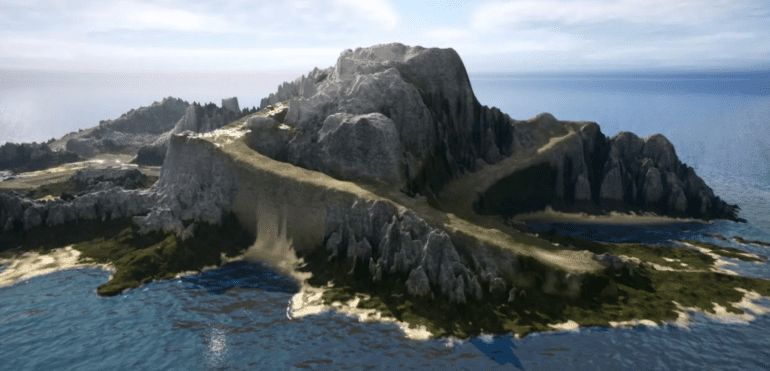TL;DR:
- Auctoria, founded by Carbon Studio’s co-founder Aleksander Caban, leverages generative AI to create 3D video game assets.
- It offers features to generate entire 3D game levels, transform images into 3D assets, and respond to text prompts and sketches.
- Auctoria stands out with proprietary AI algorithms and two years of R&D, making it a robust tool in a competitive market.
- Legal challenges surround AI-generated media, but Auctoria focuses on partnering with game studios for now.
- The company aims to secure $5 million in funding to enhance scalability and user experience.
Main AI News:
The world of game design has long grappled with the labor-intensive task of manually crafting video game environments, from rocks and hills to intricate pathways. Aleksander Caban, co-founder of Carbon Studio, a renowned Polish VR game developer, recognized this challenge and sought to transform the industry. Collaborating with tech enthusiasts Michal Bugała, Joanna Zając, Karolina Koszuta, and Błażej Szaflik, also co-founders of Carbon Studio, Caban spearheaded the creation of Auctoria, a groundbreaking platform harnessing the power of AI to generate 3D video game assets from the ground up. Situated in Gliwice, Poland, Auctoria is gaining prominence as a participant in the Startup Battlefield 200 at TechCrunch Disrupt 2023.
A Passion-Driven Vision
“We created Auctoria out of a passion for limitless creativity,” stated Joanna Zając in an exclusive email interview with TechCrunch. “It was conceived to bolster the endeavors of game development professionals, but its applications extend to anyone with a creative spark. The current landscape lacks advanced tools for professionals, with most catering to hobbyists and amateurs. We aim to disrupt this paradigm.”
Auctoria’s Unique Offering
Auctoria leverages generative AI technology to produce a diverse array of model types tailored for video games. Among its standout features is the ability to generate entire 3D game levels, complete with player pathways, albeit of a relatively basic nature. Furthermore, Auctoria can transform uploaded images and textures of walls, floors, and columns into their 3D counterparts, seamlessly integrating them into the gaming environment.
Users are granted the option to input text prompts, invoking Auctoria’s creative prowess akin to DALL-E 2 or Midjourney. Alternatively, they can provide a sketch, which the platform diligently translates into a functional digital model. Notably, Zając emphasizes that all the AI algorithms fueling Auctoria and the accompanying training data are proprietary, firmly establishing the platform’s independence from external providers or open-source solutions.
A Competitive Landscape
While Auctoria makes waves in the burgeoning AI-driven game asset generation market, it does face competition. Platforms like 3DFY and Scenario, along with startups including Kaedim, Mirage, and Hypothetic, are staking their claim. Even industry stalwarts like Nvidia and Autodesk are dipping their toes into the sector with offerings such as Get3D and ClipForge. The race to seize this colossal opportunity is well underway, considering the estimated worth of the 3D models market, projected to reach $3.57 billion by 2028, according to Proficient Market Insights.
Auctoria’s Strengths
Zając asserts that Auctoria’s competitive edge lies in its extended development cycle, approximately two years in research and development. This commitment has yielded a “robust” and “comprehensive” toolset, setting it apart from some of its rivals. She adds, “Presently, there’s a void in AI-based software enabling the creation of complete 3D world models. Existing solutions mostly revolve around 3D editors and plugins, offering only a fraction of Auctoria’s capabilities. Our team embarked on this journey two years ago, giving us a mature, ready-to-use product.“
Navigating Legal Complexities
As is customary for generative AI startups, Auctoria must confront the intricate legal landscape surrounding AI-generated media. In the United States, the extent to which AI-generated works can be copyrighted remains unclear. However, the Auctoria team, currently comprised of seven employees in addition to the five co-founders, has deferred addressing these legal questions. Instead, they are focusing on forging partnerships with game development studios, including Carbon Studio, to pilot their groundbreaking tool.
Looking Ahead
In anticipation of Auctoria’s imminent general availability in the months ahead, the company aspires to secure up to $5 million in funding, a strategic move aimed at expediting the development of backend cloud services to scale the platform. “The infusion of funds will significantly reduce the computational time required to craft worlds or 3D models with Auctoria,” explains Zając. “Creating infrastructure for a software-as-a-service model is one aspect, while enhancing user experience, streamlining onboarding through an intuitive UI, and delivering top-notch customer service and marketing experiences are equally pivotal. We intend to maintain our lean core team but anticipate expanding our workforce by the end of the year.” Auctoria’s journey to revolutionize the gaming industry is just beginning, and its potential impact on the creative world is nothing short of transformative.
Conclusion:
Auctoria’s entry into the market signifies a significant shift in game asset creation, empowering developers with AI-driven tools. With a strong foundation, it’s well-positioned to compete in the growing 3D models market, which is projected to reach $3.57 billion by 2028. Auctoria’s focus on user experience and scalability, coupled with its commitment to partnerships, bodes well for its future in the industry.

